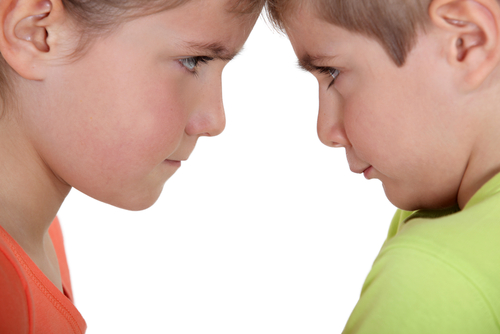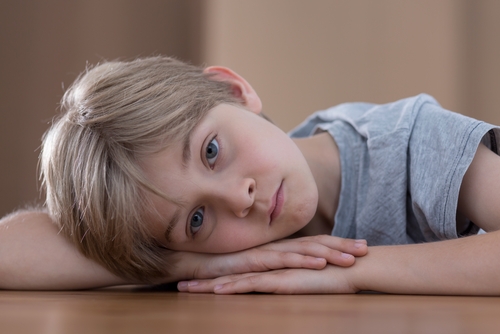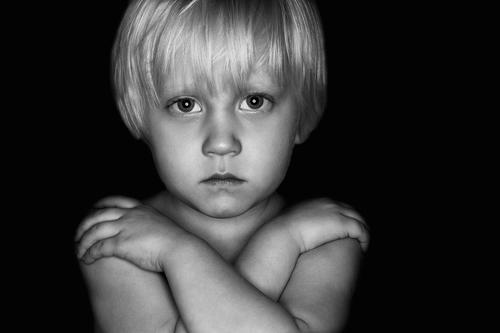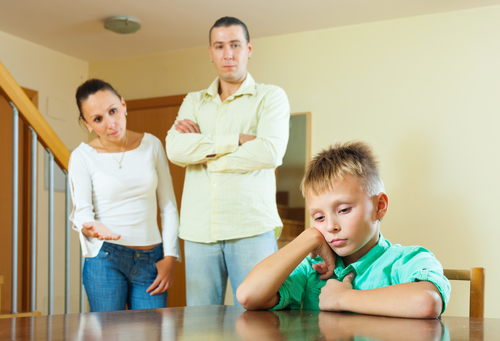“My child hits others!” How do we deal with aggression?
/By Joseph Sacks, LCSW
Special thanks to my dear friend Vivek Patel, at meaningfulideas.com, for helping me develop the ideas in this article.
Do you have a child who has been acting aggressively lately? Has he been hitting his parents or other children? Does she throw or break things violently, and you are concerned?
Many parents complain nowadays, “My child hits others!” What is the solution to dealing with this issue?
First of all, don’t overreact. I promise you that it’s not a sign your child is heading for a life of violence, or being outcast from society! A certain amount of hitting and aggression is normal in children and not cause for undue concern, especially with boys, for several reasons.
Sometimes they are just exploring their world!
Almost all children experiment with aggression and hitting as part of the process of learning about their world. If you’ve rarely done it, hitting something is a fascinating and exhilarating experience of the wonder of how the world works. Hitting someone or something with a “Whack!” is an irresistible part of a child’s exploration of physical function. It gives him or her and exciting experience of her new-found power. Therefore a certain portion of this behavior is not truly aggressive, it is just curiosity and experimentation. Therefore that portion should be treated as such, the child must be taught to refrain, but not labeled or reprimanded as violent and aggressive, as that would terribly shame the child for his very natural, healthy impulses. Instead he or she should be allowed to experiment with aggression in a safe and controlled environment such as play fighting, and aggressive fantasy play. Yes! Play fighting is very healthy and acceptable! It not only doesn’t encourage violence, it actually helps children to control, channel and resolve their aggressive impulses into healthy activities. I recommend having a special corner of the room where toys can be thrown and towers can be knocked down. Throwing toys is an irresistible and necessary exploratory pleasure for children! It must be allowed in a safe, controlled way. Forbidding throwing and aggressive play will be futile, create terrible conflict between parent and child, make children miserable, and only create much more aggressive feelings!
However often the hitting is truly aggressive, and it may come from several sources.
Oftentimes, the child who is hitting has deep intense wants, which to him feel like needs, and he is acting aggressively to try and satisfy those wants. Maybe he wants another child to leave him alone. Maybe he wants a particular toy. Maybe something is bothering him. That doesn’t justify his hitting, but by showing him you will carefully satisfy his needs and wants as much as possible, can prevent the hitting impulse altogether, without any damaging, shaming reprimands! You have to show him you will be there for him so he won't want to hit. Make him happy, find out what's bothering him and what he’s upset about, and try to fix it. Never fear you’re spoiling your child! Many wants children experience represent deep and fundamental emotional needs, and not having those needs fulfilled is precisely that which drives children to act demanding and spoiled.
For a fascinating discussion of the issue, see my post, How not to spoil your child, here.
Making them as happy as possible actually prevents them from being spoiled, and prevents every kind of behavior and emotional problem! In other words, not only is it unwise to punish or shame a child for hitting, we must do the opposite and make him happy!
Overwhelming feelings
Alternatively, children who are hitting often are experiencing overwhelming emotions that spill out into aggressiveness. They can be terrified of their own feelings. It is precisely the moment when the child needs attention, empathy, understanding and consideration. You need to restrain the child from hitting, but it is no time for harsh scolding, punishments, shaming reprimands, ignoring or time-outs! A child who is hitting aggressively is calling out for help! He’s saying, “My emotional needs are going unfulfilled! As a result I am overwhelmed. Going even another moment in this state is intolerable for me and makes me furious!” Therefore aggression is a sign that we need to swoop in and provide support for the aggressor, as well as protecting the one on the receiving end. Do some reflection, “Wow, it looks like you’re feeling really angry! He called you a name and that hurt your feelings.” “You get so upset and frustrated when you can’t get what you want.” When the child sees you know how he feels, he will be validated, experience some relief and may be less aggressive.
Reconnect with the child
Moreover, children who are acting aggressively are often experiencing a lack of connection with the important adults in their lives. That is, they are feeling a mini-abandonment. It may not seem that way to us but it is very real to them! Connecting with the child emotionally, giving warm, positive, empathetic attention, an embrace or joining in an activity, is often enough to defuse the aggression. Reconnecting with him reassures him and his fear subsides.
Reduce bossing!
There’s another, different, common cause for aggression. If a child feels overly restricted and bossed generally in his life, this is perceived as an aggression towards him. The excessive rules and restrictions are forcefully limiting him and he feels like he’s being aggressively locked up. This, in turn creates aggressive counter-feelings and tendencies. I have seen many aggressive children who have parents who are overly controlling, restrictive and enforce too many rules. It is bad enough that children are constantly told what to do in school all day, at home they need a relaxed and free environment! For such a child, reducing restriction, rules and bossing, by 10 percent across the board, will greatly increase valuable self-determination, and in a few weeks the aggression will subside! For a detailed discussion of how reducing commands increases compliance and improves behavior, click here.
Be generous
Children often hit when they don't get what they "Want" but more often it's because they didn't get what they need. Let’s say the child gets an hour of TV, and when you tell her you have to turn it off, she gets angry and aggressive and starts hitting. The truth is an hour of TV is a somewhat arbitrary amount. She's telling you at this time, “I have a desperate need for the kind of pleasure and happiness that another 15 minutes of TV provides! Not getting it is intolerable to me and makes me feel extremely deprived and angry!” Again, don't feel you're spoiling your child by giving them that extra 15 minutes. You may be fulfilling an important need.
Let's say a parent insists that a four-year-old cleans up her toys always immediately after playing with them, and the child feels restricted and gets aggressive and hits the parent. The truth is school is for strict rules about cleaning up, and home needs to be a much more relaxed environment. Maybe it's a little too much to expect a child of that age to always clean up right away. Home is supposed to be where you don't have to always clean up, you can be a kid and leave things are as they are sometimes. The parents are performing an incredible act of kindness by cleaning up for their children. Therefore in this case, the best way to prevent the aggression is to not insist that he or she cleans up. Don’t fear that your child will learn to be lazy, irresponsible, of feel entitled. A taste for the responsibility for cleaning up requires great maturity and will come later. See my blog post, How to get kids to clean up, here.
We don't need to have zero tolerance policy for hitting.
Most hitting does not cause real injury and we have to accept that there will always be some small to moderate amount of it. It is not a sign that your child is "Bad." I know many parents of boys who say the brothers hit each other very often, it’s part of normal life. Fathers, how much fighting and aggressive play did you engage in with brothers and friends as a boy? I think almost every man will answer, “Plenty.” Some people, especially mothers, feel very unfamiliar with aggression in boys and very scared by it and try to enforce a zero tolerance policy, but this is unrealistic and unhealthy. Boys must experiment with, learn about and express aggressive feelings in a healthy and safe way. Again fathers should play fight and wrestle with their sons and teach them Karate and the like.
Don’t try to correct it by making them feel bad!
We want to teach a child not to hit, but we don’t want to make him or her feel bad for hitting. That will just make them miserable, which will lead to increased likelihood of getting frustrated and hitting again! Instead of making him feel bad about hitting, make him feel good about being nice to people. Describe, “You played with him, you made him happy!” We need to show the child that it’s a pleasure to not hit, that it’s in his own interest, but if we make the child feel that not hitting is for the purpose of fulfilling the parents’ need for order or social decorum, the child will resist.
When we punish or shame a child for hitting, we teach him that the only thing wrong with hitting is that you get punished or shamed! Otherwise, it’s just fine, as long as I don’t get caught! We don’t want a child thinking that way. You do want his not hitting to be an expression of empathy, consideration, kindness and respect for others. The only way to get him to behave that way is to set an example and treat him with empathy, consideration, kindness and respect. Responding with harshness or criticism does the opposite. In addition the punishment is experienced by the child as aggression and makes him more aggressive! If you lash out at a child when he misbehaves, he will in turn learn to lash out at others.
Remember Vivek Patel wisely says: When it seems like our kids deserve our love and respect the least, and when we least feel like giving it, that is precisely when they need our love and respect the most.
How does Play Therapy help?
Child-Centered Play Therapy together with Parenting Counseling is wonderful for reducing aggression. Play Therapy puts your child in the driver’s seat, giving him such an exhilarating sense of control over his own life, that his anger, frustration and resulting aggression is greatly reduced. Play Therapy makes the child feel so important, that he becomes much more secure and doesn’t mind giving in so much to others, and minor offenses roll off his back, reducing conflict. In addition, in the playroom a child can healthily express any aggressive feelings he may have, and have them reflected back by an empathetic therapist, allowing him to gain conscious awareness of his angry feelings so he can process, resolve and put them in the past.
Please be advised that the above represents a parenting ideal and a high level of parenting skill, and no one should expect to fulfill it perfectly or immediately. Rather have patience with yourself and try to implement new ideas gradually.
Feel free to peruse my interesting blog, or the specialties on my website, download one of my informative free reports or view my video.
If you find yourself worrying, “My child hits others!”
and would like guidance or treatment from a child therapist in lower Manhattan, you may call me at 646-681-1707 for a free 15-minute consultation. I look forward to speaking with you!

































